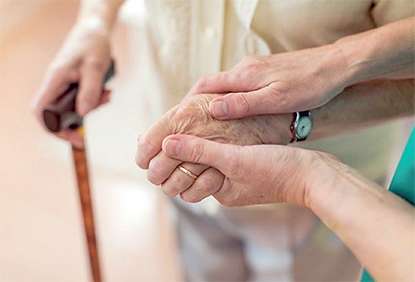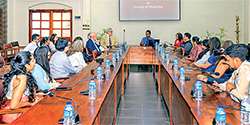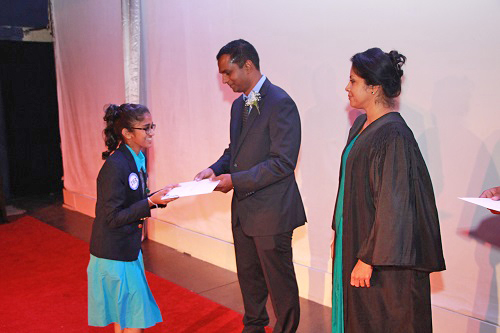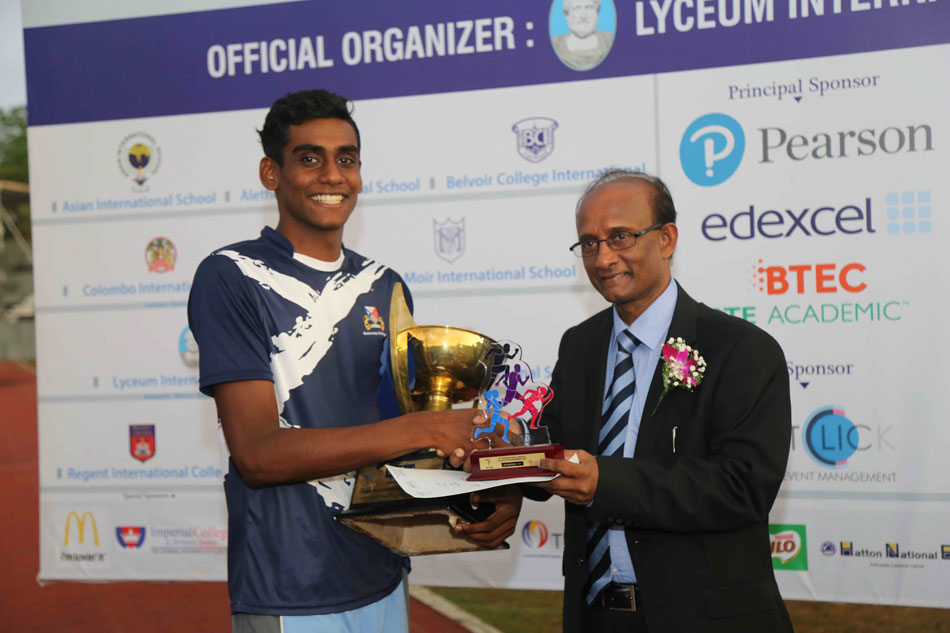Dementia or Old-Age Forgetfulness?
 As the world advances in the field of medicine and healthcare, the life expectancy of an average human being continues to increase. Whilst this is considered a significant factor for a developing country, it is also considered a burden to a country. As the population of the geriatric population increases, so does the need for old-age homes, caretakers, and old-age-related diseases. Sri Lanka has always been known for hospitality. Hospitability we have shown to strangers, our friends, and our families. As our parents grow old, we are known to take care of them.
As the world advances in the field of medicine and healthcare, the life expectancy of an average human being continues to increase. Whilst this is considered a significant factor for a developing country, it is also considered a burden to a country. As the population of the geriatric population increases, so does the need for old-age homes, caretakers, and old-age-related diseases. Sri Lanka has always been known for hospitality. Hospitability we have shown to strangers, our friends, and our families. As our parents grow old, we are known to take care of them.
This is something that makes us human as they have been caring for us since birth and they help us till the very end. This is what makes Sri Lankans unique from the rest of the world. Dementia is a chronic, progressive disease characterized by cognitive deficits. This disease is irreversible and the person will continue to deteriorate. There are many types of dementia based on their clinical features, and the commonest type of dementia is Alzheimer’s which accounts for about 70% of dementia. Dementia is common among people over the age of 65. Certain medications and alterations to increase the quality of life can be done if dementia is caught early.
That is why it is important to identify the difference between dementia and old-age forgetfulness. The earliest feature of Alzheimer’s is the progressive loss of memory. As the disease progresses, there is an impairment of other cognitive functions and personality changes such as disinhibition, socially inappropriate behaviour, social withdrawal, and deterioration of self-care. Your grandfather will constantly start to lose things and blame others for stealing them. Suspiciousness will be built. Short-term memory will be impaired.
Afterwards, there will be difficulty in recalling recent events, recognising known people, and recalling names. As the disease progresses, there will be disorientation and deterioration of executive functions. There will be a loss of executive functions such as difficulty in planning, making rational decisions, budgeting, and handling money. They will find it difficult to get around, lost even in familiar surroundings, unable to find their way back home. The terminal stages include loss of bladder and bowel control and other basic functions like eating and walking.
This all sounds pretty scary, right? So you can see the difference between simple forgetfulness in the old- age and the progressive symptoms of dementia. Elders with dementia are more prone to psychiatric illnesses such as suicidal ideations, depression, delusions, and visual and auditory hallucinations. That is why the highest suicide rate reported is amongst elderly men. The reason for this disease is the damage or loss of nerve cells in the brain. This is irreversible. Some medications help with the symptoms of dementia, but this is not a treatable disease per se.
There are pharmacological therapies that delay the progression of the disease. These medications will delay more symptoms from arising rapidly. So what can you do to help? Early identification is crucial. After the evaluation by a medical professional, you can make certain changes in their lives to improve their quality of life. In Westernised countries, there are many elderly homes designed to accommodate dementia patients. However in Sri Lanka, the elderly is taken care of by their families and loved ones. Interventions can be taken around the house to minimise risks.
A room near the washroom can be allocated to your parents, with good lighting sources around the house. If it is difficult for them to get about, railing and walking sticks can be provided whilst removing wet rugs and carpets which would increase the risk of falls. Using cookers, electric kettles, and other electric appliances can be dangerous and they need to be supervised carefully. It is important to surround them with a familiar setting and a monotonous lifestyle so they do not forget. You can also keep reminding them of their past with pictures, and videos.
They mustn’t feel neglected or lonely. Getting your kids to play with them or involving them in day-to-day activities can make them feel more important. They should always be encouraged to be independent. If their condition is severe, and their wandering behaviour is prominent, you will have to make sure the doors are locked and secured. Using pill dispensers for medications to prevent accidental overdosing and tagging them with emergency contact numbers is important. Before the disease progresses, legal documentation concerning land ownership, creating power of attorney, and other wills must be drawn.
Discuss access to money and financial statements in their sound mind. As the disease progresses, the patients usually become more and more dependent on their carers. This eventually becomes distressful to the carers as time passes by. They need to take a break once in a while as well. The entire family should share the responsibility of caring for the patient. There are carers groups and other organisations which can provide support for them. Lankan Alzheimer’s Foundation is an institute that provides many services to patients and their families with dementia.
You can also talk to your family practitioner regarding the options and the management that can be taken to optimise the whole family’s well-being. Caring for our parents is perhaps the greatest responsibility we have as Sri Lankans with cultural values. Those who walked before us have given so much and made possible the life we all enjoy and there comes a time when we have to give back as well. Priyanjalaa Sumanasekara Faculty of Medicine, University of Kelaniya.









































.jpg)
.jpg)
.jpg)
.jpg)

.jpg)
